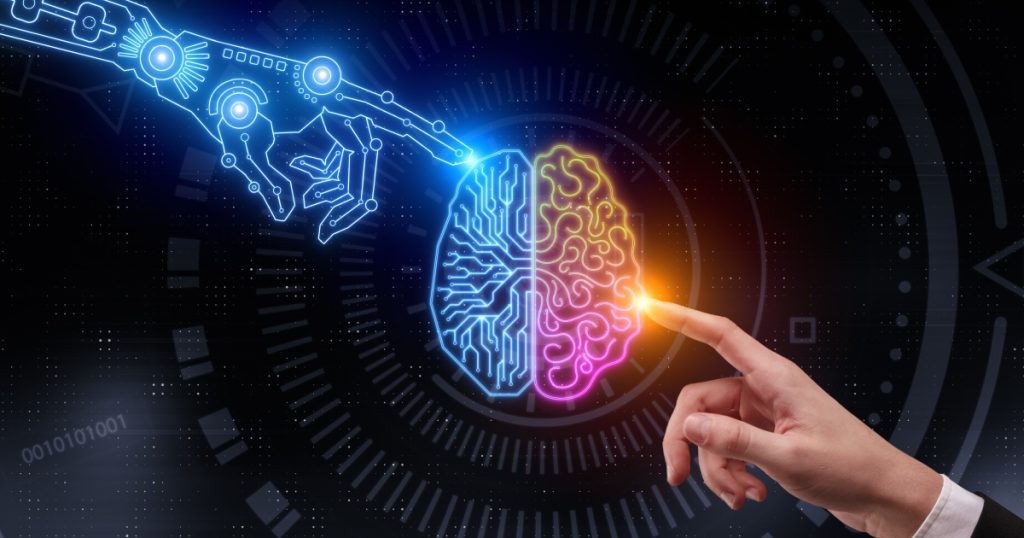
Artificial Intelligence (AI) is reshaping how companies find and hire new talent, becoming an invaluable tool in Human Resources (HR). Let’s explore how AI is transforming recruitment and why it’s so crucial in HR:
AI’s Role in Recruitment
Resume Screening and Matching: AI systems can quickly analyze resumes, comparing them with job descriptions to identify the best candidates. This not only speeds up the process but also increases the accuracy of finding individuals whose skills and experiences align with the job requirements.
Candidate Sourcing: AI can search various platforms, including job boards and social media, to find passive candidates who might not be actively looking but fit the job criteria perfectly. This broadens the talent pool beyond those actively applying.
Chatbots for Initial Screening: AI-powered chatbots can interact with candidates, asking them key questions about their qualifications and interest in the role. This early screening step helps filter out candidates who don’t meet the basic requirements, saving time for human recruiters.
Predictive Analytics for Hiring Decisions: AI can analyze past hiring data to spot patterns that predict job performance and retention. This allows recruiters to make more informed decisions, choosing candidates who are likely to excel in the role.
Enhanced Candidate Experience: AI can improve the candidate experience by providing timely updates, answering common questions, and offering personalized feedback. This creates a positive impression of the company, which is crucial for employer branding.
Bias Reduction: AI can help eliminate unconscious bias in recruitment by focusing on objective criteria like skills and qualifications rather than subjective factors. This leads to a fairer and more inclusive hiring process.
Automation of Routine Tasks: AI automates repetitive tasks such as scheduling interviews and sending follow-up emails. This allows recruiters to spend more time on strategic activities like candidate relationship building.
Skills Gap Analysis: AI can evaluate the current skill sets within a company and identify where there are gaps. This information is vital for planning training and development programs, ensuring that employees continue to grow and contribute effectively.
Why AI is Important in HR
Efficiency and Time Savings: By automating routine tasks, AI frees up HR professionals to focus on more strategic initiatives, such as talent management and employee engagement.
Improved Recruitment Processes: AI enhances the recruitment process by quickly identifying the best candidates, reducing the time-to-hire, and ensuring that roles are filled efficiently with top talent.
Enhanced Candidate Experience: AI-driven tools like chatbots can provide candidates with immediate responses, schedule interviews seamlessly, and offer personalized feedback, all contributing to a better candidate experience.
Data-Driven Decision Making: AI allows HR to make decisions based on data, such as predicting workforce needs and identifying potential retention issues. This data-driven approach leads to more effective talent management strategies.
Bias Reduction: AI’s focus on objective data helps reduce unconscious bias, ensuring fairness in recruitment and performance evaluations.
Employee Development and Retention: AI can analyze employee data to spot skill gaps and recommend personalized development opportunities, helping to improve employee satisfaction and reduce turnover.
HR Analytics and Insights: AI-powered analytics provide deeper insights into workforce trends and performance metrics, aiding in proactive decision-making and strategic planning.
Adaptability and Scalability: AI solutions can easily adapt to changes and scale with the organization, making them ideal for companies undergoing growth or restructuring.
Compliance and Risk Management: AI can help ensure that HR practices comply with regulations, flagging potential risks and ensuring consistency across processes.
In essence, while AI offers incredible advantages in HR and recruitment, it’s important to balance its use with human judgment and empathy. AI should be seen as a tool to augment human capabilities, ensuring fairness, transparency, and ethical practices in the hiring process and beyond.
